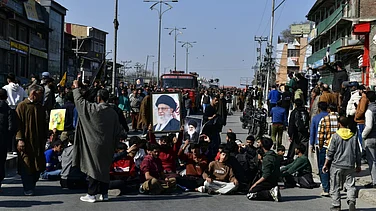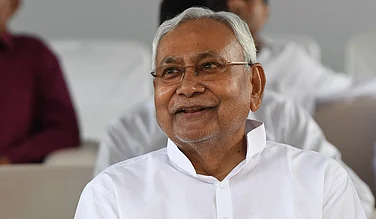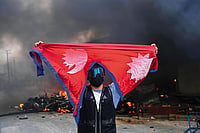Just ahead of the World Press Freedom Day, Committee to Protect Journalists (CPJ), an international press freedom advocacy organisation along with several others including Human Rights Watch, Internet Freedom Foundation (IFF), Amnesty International and Reporters Without Borders (RSF) to name a few, published a statement expressing their concerns regarding the depreciating media freedom in India.
The statement requests the Indian government to withdraw Information Technology (Intermediary Guidelines and Digital Media Ethics Code) Amendment Rules, 2023 that authorises a “fact check unit of Central government” to identify the contents pertaining to “any business” of the government as “fake or false or misleading”. Ministry of Electronics and Information Technology (MeitY) on April 6 amended the IT rules of 2021 which were also severely criticised by different media bodies.
The new amendment proposes to form a governmental fact-check body that would overhaul the news floating across different online platforms, including social media and online intermediaries. If the body finds any news “false or fake” and asks the intermediaries to take down the content, they would be obliged to do so, failing which they could be held liable in the court of the law for hosting content of a third-party producer. However, different media bodies note that there is a lack of clarity on the definition of ‘false’ or ‘fake’ news.
Pointing out that such an amendment gives the government “arbitrary” and “unchecked censorship powers”, the statement notes that it threatens “the rights to freedom of expression and opinion enshrined in the Indian Constitution and under international human rights law.” “In the guise of combatting online misinformation and disinformation, the Indian government has given itself the power to decide which information posted online is fake, false or misleading – terms that are inherently subjective and lack a clear legal definition. In effect, the government empowers itself to be the sole arbiter of truth on the internet,” it adds.
Human Rights Committee, United Nations in its reports of the 102nd session in 2011 clearly notes, “The penalization of a media outlet, publishers or journalist solely for being critical of the government or the political social system espoused by the government can never be considered to be a necessary restriction of freedom of expression.” Promoting the freedom of media, the International Covenant on Civil and Political Rights also adds, “A free, uncensored and unhindered press or other media is essential in any society to ensure freedom of opinion and expression and the enjoyment of other Covenant rights.”
David Kaye, who was appointed as a Special Rapporteur on the promotion and protection of the right to freedom of opinion and expression in August 2014 by the United Nations Human Right Council, 2017 while raising concerns over the growing prevalence of fake news notes, “Fake news’ has emerged as a global topic of concern and there is a risk that efforts to counter it could lead to censorship, the suppression of critical thinking and other approaches contrary to human rights law.”
Several other organisations like the Organization for Security and Co-operation in Europe (OSCE), the Organization of American States (OAS), and the African Commission on Human and Peoples’ Rights (ACHPR) also flagged the concern that fake or false news cannot be a sufficient ground for censorship.
Taking note of all these international covenants, the statement of CPJ and others note, “These rules have come into force at a time when press freedom, and the safety and security of journalists, are under serious attack in India. Journalists face harassment, intimidation, smear campaigns, censorship, attacks, and imprisonment under draconian laws.”
The amendment, however, came at a time when the original IT law of 2021 is facing legal challenges in different courts. In September, 2021 while hearing a petition that challenged the law for violating rights granted in the Articles 14 and 19, the division bench of Madras High Court comprising of Justices Sanjib Banerjee, CJ and P.D. Audikesavalu, J observed, “Oversight mechanism to control the media by the Government may rob the media of its independence and the fourth pillar of democracy may not at all be there.”
The Central government recently asked YouTube and Twitter to take down the BBC documentary on 2002 Gujarat pogrom that investigated the alleged role of Prime Minister Narendra Modi citing this IT rule, 2021. However, the first to receive notice under the IT rule was The Frontier Manipur, a news website. The local magistrate issued the notice to the website asking to comply with the rules as it planned to discuss the attacks on digital media in its weekly talk show. Though the notice was withdrawn as Ministry of Information and Broadcasting clarified that they are the only authority to administer the rules, the tensions lingered on.
In this context, the media freedom advocacy bodies urged the government to withdraw IT rules as well as the amendments to safeguard journalists from its stifling impact. However, earlier Union Minister of State for Electronics and Information Technology Rajeev Chandrasekhar while clarifying about the IT rules said that the amendment didn’t refer to the PIB fact check. "The rules do not at all suggest that it`s going to be PIB Fact Check. I think some of the grey area, or indeed the misapprehension, comes from the fact that the original draft of the rule that went for consultation talked about PIB Fact check. The rules that were notified yesterday do not mention PIB Fact Check,” says Chandrasekhar.
Referring to the fact-checking mission of the government Chandrasekhar adds, “So we have yet to take a decision on whether it will be a new organization that has trust and credibility associated with it, or do we take an old organization and repurpose it to build trust and credibility in terms of a fact-checking mission.”






















